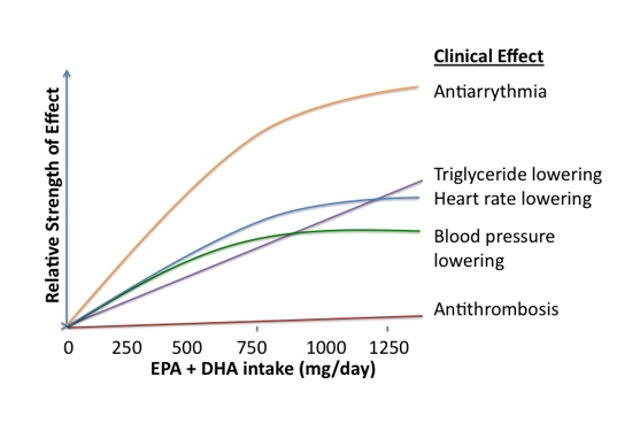Although measurements of absorption and bioavailability may be used to support claims about “superiority” of one form of omega-3 over another, it prevents us from focusing on the critical issue – their ultimate clinical effects. This point is shown by looking at the long term clinical effects of fish oil on risk factors for cardiovascular disease (Figure 1) when an effective dosage of EPA and DHA is reached. These effects have been extracted from one of the largest meta-reviews of 4 controlled trials that included nearly 40,000 participants randomized to receive EPA and/or DHA. It clearly shows that as the daily intake of EPA and DHA increases, a stronger clinical effect is exerted – and that regular use of EPA and DHA at an adequate
dosage is far more important than what form the omega-3 is in (Lavie, 2009).
Figure 3: Achieving higher daily intakes of EPA and DHA increases their effect on clinical outcomes (Adapted from Lavie, 2009)
At the current time,there is a lack of credible evidence which supports the assertion that the triglyceride form of omega-3 fish oil is, in any clinically significant way, more advantageous or beneficial than the ethyl ester form. Marketing claims being made about the superiority of the triglyceride form prevents us from focusing on the critical issue – the important and essential clinical effect of omega-3.
For the scientific reasoning shown here, Wiley’s Finest omega-3’s are in the ethyl ester and natural triglyceride form (dependent on product), with the main focus on providing customers with products that easily support compliance as well as ensure they are made under strict quality control for purity and safety.



